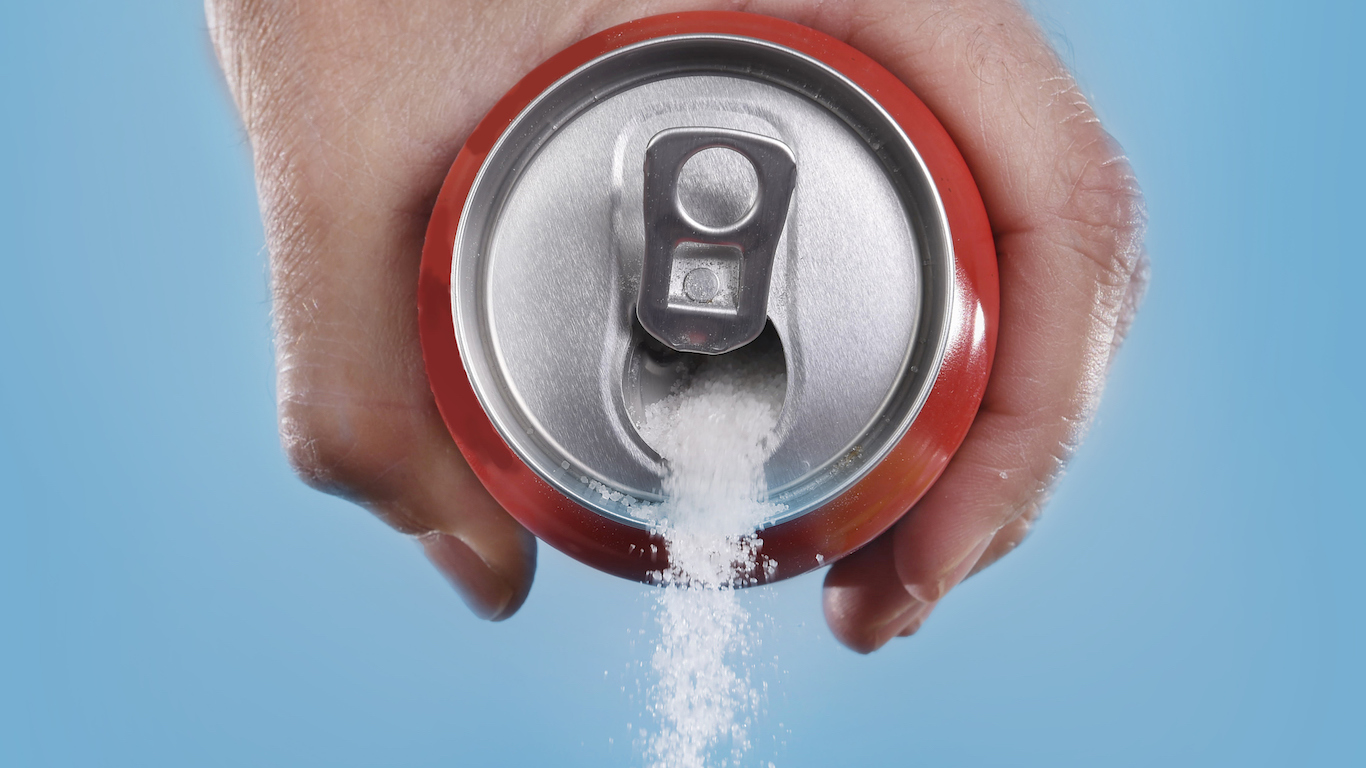Companies and Brands
The Artificial Sweetener in Your Favorite Diet Drink Could Be Dangerous

Published:
Last Updated:

A new report published last week charges that the most widely used sugar substitute in the world may not be as safe as consumers have been told. Aspartame, an artificial sweetener sold under the brand names Nutrasweet and Equal, among others, is used in virtually every diet soda brand in the world and is widely used in packaged products designated as “diet” foods.
Aspartame, which is 200 times sweeter than sugar, has been approved for use in food products by the U.S. Food and Drug Administration (FDA) and the European Food Safety Authority (EFSA). Arguments over the safety of aspartame first erupted in 1974, when the FDA announced that it would approve the sweetener for use in dry goods. It took seven years for that proposed approval to overcome allegations that aspartame could cause mental retardation, brain lesions and neuroendocrine disorders, along with objections to toxicology tests said to be misleading. The FDA finally approved it as a tabletop sweetener, in chewing gum, cold breakfast cereals and dry bases of some other foods, in 1981. In 1996, aspartame was approved as a “general purpose sweetener.”
The ESFA published its first full assessment of aspartame in 2013, concluding that the sweetener and products using it are “safe for the general population.” The report published last week in the Archives of Public Health by researchers Erik Millstone and Elisabeth Dawson of the United Kingdom’s University of Sussex examined the data used by the ESFA in its 2013 assessment. The researchers report that 62 of 81 studies that found aspartame to be safe were deemed by the ESFA to be reliable while all 72 studies the agency reviewed finding aspartame to be a “possible harm” were deemed to be unreliable.
After completing their forensic review of the data, the researchers concluded: “The quantitative result indicates that the panel’s appraisal of the available studies was asymmetrically more alert to putative false positives than to possible false negatives. The qualitative analysis shows that very demanding criteria were used to judge putative positive studies, while far more lax and forgiving criteria were applied to putative negative studies.”
A trade group known as the International Sweeteners Association disputes the new report’s findings in a report at foodmanufacture.co.uk, claiming that based on the data, “EFSA’s experts could rule out any potential risk of aspartame causing damage to genes or to the brain. Additionally, a recent UK government-funded study on self-reported aspartame sensitivity concluded that ‘there was no evidence of any acute adverse responses to aspartame.'”
Just to be on the safe side, you may want to ditch that zero-sugar drink. Diet sodas are not the lesser evil; they are just as evil as regular soda, and some argue they are actually worse — here are at least 10 ways diet soda could be killing you.
Credit card companies are pulling out all the stops, with the issuers are offering insane travel rewards and perks.
We’re talking huge sign-up bonuses, points on every purchase, and benefits like lounge access, travel credits, and free hotel nights. For travelers, these rewards can add up to thousands of dollars in flights, upgrades, and luxury experiences every year.
It’s like getting paid to travel — and it’s available to qualified borrowers who know where to look.
We’ve rounded up some of the best travel credit cards on the market. Click here to see the list. Don’t miss these offers — they won’t be this good forever.
Thank you for reading! Have some feedback for us?
Contact the 24/7 Wall St. editorial team.